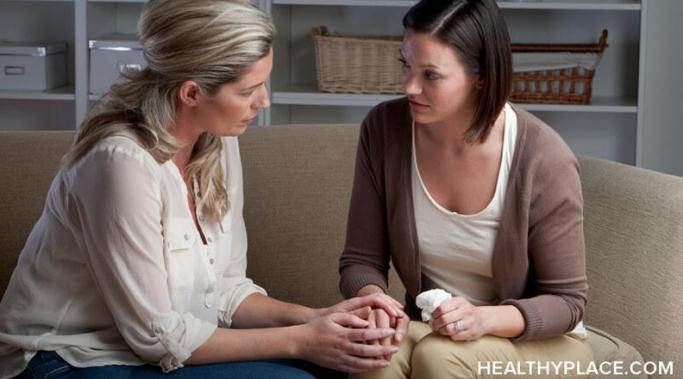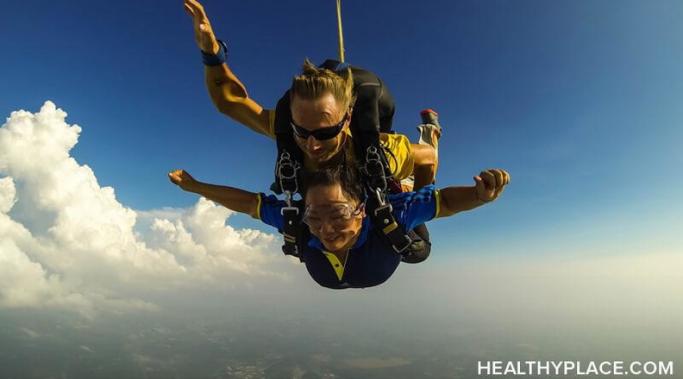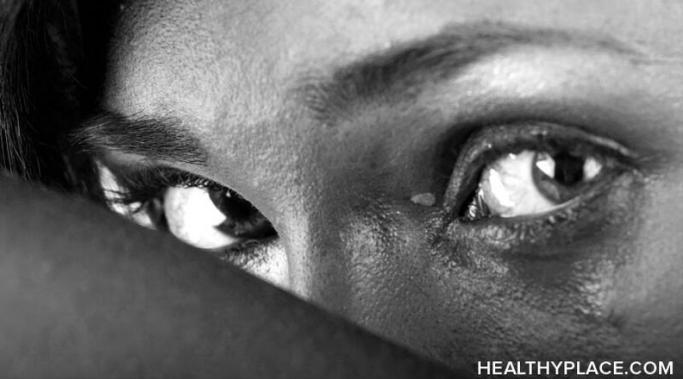Blogs
I am Kellie Jo Holly, and I participated in the cycle of verbal abuse with my soon to be ex-husband for almost 18 years. I retain the relationship with him because we have two sons together who are now teens. Leaving the marriage did not end the abuse. Stopping verbal abuse has more to do with my reaction to it than convincing him to stop!
What could cure my anxiety? In answer, all I've got is a deer in headlights expression to go with the sign that says 'wrong way, go back!' So no, I don't have a cure for anxiety. But I have some ideas.
Although our obstacles are on a smaller scale, we too know what it's like to be stuck 100 years behind the rest of the country. We face discrimination and hostility because of a psychiatric diagnosis.
Sometimes people don’t believe I’m particularly sick. They meet me, I look fine, I interact, I charm, I wit and all seems, if not normal, at least something reasonably normal adjacent.
And that’s fine. It’s by design. Being a high-functioning mentally ill person, I can’t really afford to run around with my hair on fire. But faking normalcy, happiness and pleasure is a tricky and very expensive bit of business.
Living with dissociative identity disorder (DID) presents unique difficulties, whether you're the one that has it or the person who loves the one living with it. I can only imagine how frustrating, confusing, even painful it must sometimes be to have a partner with DID.
I've witnessed how challenging it often is for my own partner and, if some of the comments I've received here at Dissociative Living are in any way representative, her experience is typical. But it's also largely ignored. Partners of people with DID don't get that much support or encouragement, primarily because only those who've been there can truly understand (Caregiver Stress and Compassion Fatigue).
It took Kellie Holly almost fifteen years to realize she was in a verbally abusive marriage, and another three to get out of it. Living with verbal and emotional abuse conditioned her to doubt her instincts, and convinced her that she was the cause of her relationship problems.
Don't just manage anxiety: Be there
We don't have to break the bank to cope with anxiety but we do have to be there. For ourselves. For each other. That's half the job done.
But isn't a job, it's life: A messy, complicated, nerve-wracking love affair with breathing.
I really can't tell you how important support is in coping with that, and with mental health conditions. There are rare moments, between the devil and the deep blue sea, in which we will all experience it: Genuine validation.
I’m a science gal. I practically drown in the stuff. True, I have a natural curiosity for pretty much everything, but also, I try to keep abreast of what’s happening in the research areas of mood disorders and psychopharmacology. Yes, it’s a lot of work.
I certainly don’t catch everything, but one thing I did catch a while back was this, “Study Finds No Difference In Nonsuicide Mortality Between Two Anti-Psychotic Drugs.”
Basically, neither Zyprexa nor Geodon will kill you more. But is that actually what the study showed?
If you have Dissociative Identity Disorder, recognizing when you're on a downward spiral may be incredibly difficult. Dissociation separates us from our thoughts, feelings, and experiences and makes maintaining awareness of our very realities a monumental challenge. My hope is that by taking stock of my mental health warning signs, I can increase my chances of noticing the next decline in functioning at its inception, rather than coming out of a dissociative fog six months in and wondering what happened to my life.
The holidays aren't the only thing that can send a routine down the tubes.
From very early Monday morning until very early this morning, we had snow. Lots and lots of snow. Roughly 7 inches of the stuff in my neighborhood. Needless to say, school was canceled, and since I wasn't eager to make the 30 mile drive over mostly un-plowed interstate to my office, I stayed home with the kids. And with temperatures in the single digits, we're not in any hurry to get out and make snow angels.
Apparently, one needn't live in a cabin to have "cabin fever."








